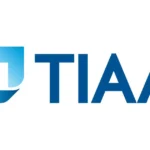Introduction:
How Long Does It Take To Get A Business Degree? An Associate’s Degree takes about two years, a Bachelor’s Degree requires four years, and an MBA typically needs two years. Doctoral Degrees generally take three to five years.
Getting a business degree can open many doors for your career. This degree usually involves studying business concepts, management, and economics. Graduating with a business degree often takes time, and understanding this timeline is important for planning. In this article, we’ll look at how long it typically takes to earn a business degree and what factors might affect this duration.
Ready to start your journey toward a business degree? Let’s explore the different options and what you can expect in terms of time commitment.
We will cover degree types, the average time required, and how part-time or full-time study might impact your timeline. This information will help you make informed decisions about your education path.
Types of Business Degrees
Associate’s Degree in Business

An Associate’s Degree in Business is an entry-level qualification typically requiring two years of study. This degree provides foundational knowledge in core business areas such as accounting, marketing, and management. It is designed for individuals who wish to enter the workforce quickly or seek to transfer to a bachelor’s program for further education.
Graduates with an Associate’s Degree can pursue various entry-level roles, such as administrative assistants or junior managers. The program’s shorter duration makes it a practical choice for those seeking a swift start in their business careers or aiming to gain a basic understanding of business principles before advancing to more specialized studies.
Bachelor’s Degree in Business
A Bachelor’s Degree in Business usually spans four years of full-time study and offers a comprehensive education in business principles. This degree covers essential subjects like economics, business law, and organizational behavior, equipping students with a broad understanding of the business world. It prepares graduates for more advanced positions or specialized roles in areas such as finance or marketing.
Completing a Bachelor’s Degree can open doors to various career opportunities, including management positions and professional roles in different industries. The program’s in-depth coursework and practical experiences are designed to provide a solid foundation for those aiming to pursue higher education or advance in their careers.
Master’s Degree in Business (MBA)
The Master’s Degree in Business, commonly known as an MBA, generally requires two years of full-time study. This advanced degree focuses on strategic management, leadership, and advanced business practices. MBA programs often include real-world projects and internships, providing practical experience alongside academic learning.
An MBA can significantly enhance career prospects by preparing graduates for executive roles and higher-level management positions. It is particularly valuable for professionals looking to switch industries, advance in their current roles, or gain expertise in specific business areas. The program’s rigorous curriculum aims to develop leadership and strategic thinking skills.
Doctoral Degree in Business
A Doctoral Degree in Business, such as a Ph.D. or DBA, typically takes three to five years to complete. This degree is geared towards individuals interested in academic research, teaching, or high-level consulting. Doctoral programs involve extensive research, dissertation writing, and specialized coursework.
Earning a doctoral degree in business provides opportunities for careers in academia, research, and consulting at the highest levels. It is the highest academic qualification in the field, focusing on producing original research and contributing new knowledge to the business discipline.
Do you need a business license to sell on etsy
Accelerated Programs
Accelerated Programs offer a faster route to obtaining a business degree by intensifying coursework and often including summer sessions. These programs are designed for students who want to complete their degree in a shorter period, typically within 12 to 18 months instead of the usual duration.
While accelerated programs can significantly reduce the time to graduation, they also come with an intense workload and fast-paced learning environment. They are ideal for motivated individuals who are prepared for a rigorous academic schedule and wish to expedite their entry into the workforce or advance their careers quickly.
Part-Time and Online Programs

Part-Time and Online Programs offer flexibility for students balancing their studies with other commitments. Part-time programs typically extend the duration of the degree, allowing students to take fewer courses per term, while online programs offer the convenience of studying from anywhere.
These programs are particularly beneficial for working professionals or those with family responsibilities, providing the opportunity to earn a degree while maintaining their personal and professional obligations. The flexibility comes with the trade-off of a potentially extended time to completion, depending on the student’s pace and schedule.
Factors Influencing Duration
Several factors can influence the time required to complete a business degree. Full-time vs. part-time study is a primary factor, with full-time students generally finishing their degree faster than part-time students who may take longer to complete their coursework. Program structure also plays a role, as some programs are designed to be completed more quickly through accelerated formats.
Other factors include transfer credits from previous education, which can shorten the duration for students with prior college experience. Additionally, personal commitments such as work or family responsibilities can impact the time needed to complete a degree, with students needing to balance their studies with these obligations.
Time Management Tips for Students
- Set Clear Goals: Define specific, achievable objectives for your studies and personal life to stay focused and motivated.
- Create a Study Schedule: Develop a weekly plan that includes designated times for studying, attending classes, and completing assignments. Stick to this schedule as closely as possible.
- Prioritize Tasks: Identify and tackle high-priority assignments first. Use tools like to-do lists or task management apps to keep track of deadlines and responsibilities.
- Avoid Procrastination: Start working on assignments and projects early to prevent last-minute stress. Break large tasks into smaller, manageable steps.
- Use Time Management Tools: Utilize calendars, planners, and apps to organize your schedule, set reminders, and track deadlines effectively.
- Establish a Routine: Develop a consistent daily routine that includes dedicated study times, breaks, and relaxation. This helps create a balanced approach to managing your workload.
- Minimize Distractions: Identify and reduce distractions while studying, such as turning off notifications or finding a quiet study space.
- Take Regular Breaks: Incorporate short breaks into your study sessions to maintain focus and prevent burnout. Techniques like the Pomodoro Technique can be helpful.
- Stay Organized: Keep your study materials and workspace organized to save time and reduce stress. Use folders, notebooks, and digital tools to keep track of important information.
- Seek Support When Needed: Don’t hesitate to ask for help from professors, tutors, or classmates if you’re struggling with time management or understanding course material.
Real-World Applications and Benefits
A business degree offers numerous practical benefits and applications in the real world. Enhanced career opportunities are a major advantage, as graduates can pursue a wide range of roles across various industries. The degree also often leads to increased earning potential, with higher-level positions typically offering better salaries.

In addition to career benefits, a business degree fosters the development of valuable skills such as leadership, strategic thinking, and problem-solving. These skills are applicable in many professional settings and can greatly benefit individuals in their personal and professional lives. The degree also provides networking opportunities with professionals and peers, which can be valuable for career advancement and growth.
Comparison of Different Program Durations
| Degree Type | Typical Duration |
| Associate’s Degree in Business | 2 years |
| Bachelor’s Degree in Business | 4 years |
| Master’s Degree in Business | 2 years (full-time) |
| Doctoral Degree in Business | 3-5 years |
| Accelerated Programs | Varies (shorter duration) |
| Part-Time and Online Programs | Varies (flexible) |
Additional Tips
- Research Programs Thoroughly: Investigate different programs to find one that aligns with your career goals and personal schedule.
- Stay Organized: Use planners and digital tools to keep track of deadlines and assignments.
- Seek Academic Support: Don’t hesitate to ask for help from tutors or academic advisors if you’re struggling with coursework.
- Engage in Class: Actively participate in classes to enhance your learning and connect with instructors.
- Balance Work and Study: Develop a schedule that allows you to manage both your job and your studies effectively.
- Network with Peers: Build relationships with classmates and industry professionals for future career opportunities.
- Take Care of Yourself: Ensure you have time for relaxation and self-care to avoid burnout.
- Plan Financially: Budget for tuition, textbooks, and other expenses associated with your degree program.
- Stay Motivated: Keep your goals in mind and remind yourself why you’re pursuing your degree.
- Evaluate Progress Regularly: Periodically review your progress and make adjustments to your study plan as needed.
Answers to Key Questions
What Is The Best Age To Start A Business?
Starting a business can be successful at any age, but the best time often depends on individual circumstances. Many entrepreneurs find their early 20s ideal for launching a business, as they have fewer financial and personal obligations, along with a willingness to take risks.
However, starting a business in your 30s or 40s can also be advantageous due to accumulated experience, skills, and financial stability.
Ultimately, the best age to start a business is when you have a solid business plan, sufficient resources, and the determination to succeed. Age should not be a barrier; rather, your readiness, knowledge, and passion play a crucial role in your entrepreneurial success.
What is the Fastest You Can Get a Business Degree?
The fastest way to obtain a business degree is through an accelerated program, which can often be completed in 12 to 18 months. These programs offer a more intensive course load and may include summer sessions to expedite the learning process.
While accelerated programs require a significant commitment, they allow you to earn your degree more quickly than traditional timelines.
How long does it take to get an Associate’s Degree in Business?
An Associate’s Degree in Business usually takes two years of full-time study. This degree provides a foundational understanding of business principles and is designed to prepare students for entry-level positions or further education.
What is the difference in duration between a Bachelor’s and a Master’s Degree in Business?
A Bachelor’s Degree in Business typically requires four years of study, while a Master’s Degree (MBA) generally takes two years of full-time study. The bachelor’s degree provides a broad overview, while the MBA offers specialized, advanced knowledge.
Can I complete a business degree faster through an accelerated program?
Yes, accelerated programs are designed to be completed in a shorter time frame by offering more intensive coursework. Students can often finish their degree in 12 to 18 months, depending on the program’s structure and their pace of study.
How do part-time and online programs affect the duration of a business degree?
Part-time and online programs offer flexibility but may extend the duration of the degree. Students in these programs can take fewer courses per term or study at their own pace, which can lead to a longer time to completion compared to full-time programs.
What factors influence the time it takes to complete a business degree?
Factors influencing the duration include study mode (full-time or part-time), program structure (accelerated or traditional), transfer credits from previous education, and personal commitments such as work or family responsibilities.
Pros and Cons
Pros:
- Increased Career Opportunities: A business degree can open doors to a wide range of career paths in various industries.
- Higher Earning Potential: Generally, business degrees lead to higher salaries compared to those without a degree.
- Skill Development: Business degrees provide valuable skills such as leadership, management, and financial analysis.
- Networking Opportunities: Business programs often offer networking events, internships, and connections with alumni and industry professionals.
- Versatility: A business degree is applicable to many fields, including finance, marketing, management, and entrepreneurship.
Cons:
- Cost: Business degrees can be expensive, with significant tuition fees and potential student debt.
- Time Commitment: Completing a business degree typically requires several years of study and coursework.
- Competitive Job Market: Despite having a degree, the job market can be highly competitive, and a degree does not guarantee employment.
- Stress and Workload: The demands of coursework, internships, and exams can be stressful and require a significant amount of time and effort.
- Limited Specialization: Some business degrees offer limited depth in specialized areas compared to advanced degrees or targeted certifications.
Conclusion
Crafting thoughtful and sincere congratulations for award winners is a powerful way to celebrate their achievements. By understanding the different types of business degrees and their durations, you can better plan your educational journey or assist others in their academic pursuits. This article provided insights into various degree programs, their time requirements, and practical tips for success.
Whether you are congratulating someone on their accomplishments or planning your own educational path, the information and tips provided here aim to support your efforts. Use this knowledge to offer genuine recognition and make informed decisions about pursuing or supporting a business degree.

Hi, I’m Amaliyah-Richard! I’m a dedicated author at Skyvoxes. I hold a Bachelor’s degree in Business, and I love writing about all things business. My aim is to make complex business topics easy to understand and accessible for everyone. Whether you’re a seasoned professional or just starting out, I hope my articles provide you with valuable insights and practical advice.










